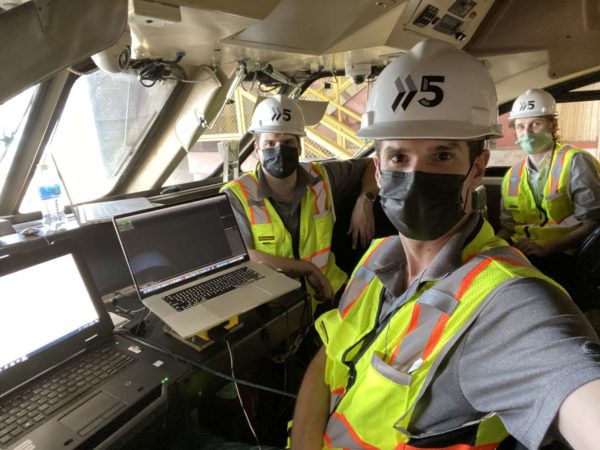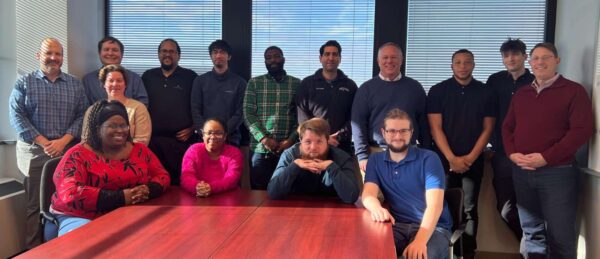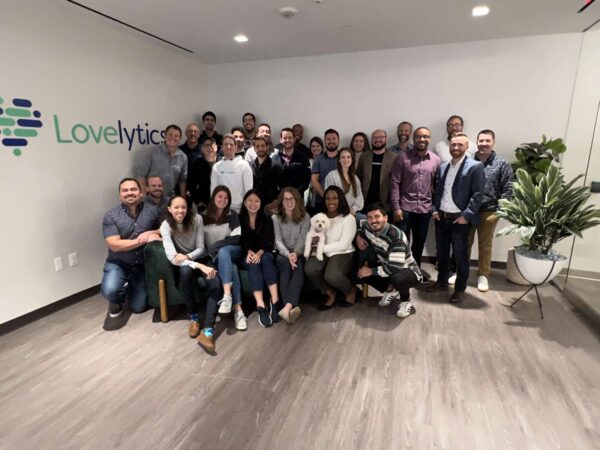Sponsored by Monday Properties and written by ARLnow, Startup Monday is a weekly column that profiles Arlington-based startups, founders, and other local technology news. Monday Properties is proudly featuring 1515 Wilson Blvd in Rosslyn.
As a commercial real estate broker, Greg Carpentier always felt he was missing or struggling to find two important pieces of information when negotiating office deals.
Floor plans and square footage.
“It was a treasure hunt,” he said.
If that information did exist, Carpentier says it was disorganized and did not reflect the upgrades landlords would make to suites and amenity spaces. But those numbers had to be accurate since the constantly fluctuating amount of usable space determines the price to buy or lease office space.
So he set out to do something about it. Carpentier talked to colleagues and clients — who shared similar frustrations — and researched the competition. Finding few competitors, he hired an overseas software developer to build a prototype solution: a platform for real estate brokers, architects and landlords to store, access and share floorplans and other office layout information.
That’s how floorwire, based out of Carpentier’s apartment near Rosslyn, was born. He incorporated the company in 2019, had domestic software developers build a new version of the software, and began taking on clients in 2020. He assembled a small team of employees in August.
Brokers, architects and landlords are not the only people who benefit from a 21st-century alternative to scrolls and scrolls of paper floorplans. The product saves tenants time and money and gives them peace of mind, says Abby Caldwell, a former client of Carpentier’s who is now the Director of Operations for floorwire, the first letter of which is deliberately displayed as lower case.
“I was in a few situations when I was a tenant where I was under pressure to move quickly and acquire additional space on a tight timeline,” she said. “The current leasing timeline is longer than you might think, and we save you time by creating a more efficient process. Also, the tenants sleep easier at night knowing the data is accurate.”

Carpentier’s company began taking on clients during the pandemic, which he says was the catalyst the commercial real estate market needed to abandon its outdated, low-tech approach to calculating and keeping tabs on square footage.
“What Covid did, as a whole, is make everyone realize how far behind commercial real estate is with regard to technology,” he said. “It exposed the problems and sped up the need for technology.”
For example, he said, Covid pushed people in commercial real estate to invest in sensors that are more accurate than architects at measuring office layouts, which are being reconfigured on a massive scale to entice workers back into the office.
“It’s a great opportunity to change the model,” he said.
This emerging industry sector is dubbed “proptech,” or property tech. Carpentier says venture capital funding is flowing into the sector, which he predicts will grow rapidly in the next five years.
“There’s so much opportunity for such a fundamental industry,” he said. “There’s a lot of money in commercial real estate. It’s a huge market: second to the stock market.”
As proptech grows, so too does floorwire. In August 2021, the company was able to hire full-time employees. In 2022, its leaders aim to take on new clients and keep working with existing ones.
“I’m really excited to take groundwork we laid in 2021 and run with it this year,” Caldwell said.















